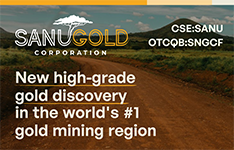The Life Sciences Report: The medical biotech sector has generally been going great guns in 2013. Is there a seasonal aspect to the overall performance of biotech stocks? Are some seasons preferable to other seasons from an investment point of view?
John McCamant: Historically, January has been a good month, as many small- to mid-cap biotech stocks that were sold for tax losses before year-end can have significant price moves in the New Year. This is commonly referred to as "the January Effect." The American Society of Clinical Oncology's annual meeting—the world's largest cancer meeting, held in May—can also be a strong time of year for biotech stock movement, as more than 50% of drug candidates in development are targeted toward treating cancer or the side effects of cancer treatment.
While there are some seasonal aspects to biotech investing, the primary drivers of good performance remain good news flow and a positive overall market environment for this sector of growth stocks. On the negative side, summer has historically been tough for biotech investors. This past summer is a good example of this trend not holding true. The biotech indices were up nicely, based on a good overall market and a slew of individual companies, like Isis Pharmaceuticals Inc. (ISIS:NASDAQ), delivering value-creating data.
TLSR: What biotech fundamentals do you use to decide whether to invest in a startup?
JM: We generally do not invest in startups, as there are many biotech companies to choose from and we prefer to see how the startups execute as public companies for a few years before we would recommend. Our key focus is on management: No matter how good a company's drug candidates are, it still requires a tremendous amount of skill and patience to navigate the drug approval process. From there, we evaluate the pipelines and specific drug candidates against others in their competitive therapeutic sectors.
TLSR: How important is finding a partner in the early stages of product development to a biotech? Is stock dilution something to be wary about?
JM: Partnerships can be very important for early-stage biotech companies, as they can provide significant funding and validation. Each partnership needs to be evaluated on its own, given the myriad of variables from partnership to partnership. Some of the variables we examine are stage of development, size of disease opportunity and the expertise of the partner.
All biotech companies lose lots of money before profitability. The business model is to sell stock to fund company development. Thus we, as investors, expect to be diluted over time in biotech companies. The key is whether or not the capital raised creates value for the shareholders. Companies that execute well in clinical trials can usually raise capital after they announce positive clinical trial results. This can also minimize dilution as the higher share price after good data allows for fewer shares to be sold.
TLSR: Let's talk about Pharmacyclics Inc. (PCYC:NASDAQ). Its stock shot from $15 in early 2012 to about $120 today. What are the market prospects for ibrutinib (a Bruton's tyrosine kinase inhibitor targeting B-cell malignancies such as chronic lymphocytic leukemia), which is on the brink of FDA approval? Is there risk associated with the meteoric rise of Pharmacyclics shares?
JM: We recommended Pharmacyclics at $17 in January 2012. As the days count down for ibrutinib's FDA approval, the company has enlisted a truly impressive lineup to launch in the U.S. The company has prepared its sales, marketing and medical affairs departments, led by experienced industry executives from the crème de la crème of biopharmaceutical companies.
For example, the executive vice president of sales and marketing, Paula Boultbee, joined from the company after working at Amgen Inc. (AMGN:NASDAQ), where she was involved in the development of Vectibix (panitumumab)—and, more importantly, led the global launch of Gleevec (imatinib) while at Novartis AG (NVS:NYSE). Vice president of sales Michael Crum arrived in January after 13 years at Genentech (Roche Holding AG (RHHBY:OTCQX)), cross-trained in selling cancer treatments including Rituxan (rituximab), Avastin (bevacizumab) and Herceptin (trastuzumab). A total of 62 sales representatives are ready once the FDA grants a label. Janssen Biotech Inc. (a division of Johnson & Johnson [JNJ:NYSE]) already has an oncology sales organization in place. While Pharmacyclics records all U.S. sales, some investors may forget that the company is working with Janssen—maybe the most powerful global sales force around—domestically as well, while Johnson & Johnson prepares for international launches. In addition, medical affairs with four specific functional teams are also in place—medical sciences, medical communications, medical Information and medical science liaisons.
In a nutshell, Pharmacyclics is ready. We remain confident that FDA approval will happen sooner than expected, and that the rollout of ibrutinib will be bigger than current forecasts. In our view, ibrutinib is the safest and best cancer drug to date, and is poised to blow away analysts' estimates upon FDA approval.
TLSR: What about vaccines? What new types of platforms and manufacturing techniques are in the pipeline?
JM: Novavax Inc. (NVAX:NASDAQ) is a company that I follow in the vaccine space. While known as a flu vaccine company, in our view, Novavax's technology represents a platform that will deliver multiple vaccine opportunities, in addition to vaccines for seasonal and pandemic flu.
The company recently presented promising respiratory syncytial virus (RSV) vaccine data at the Interscience Conference on Antimicrobial Agents and Chemotherapy. The phase 1 study of 220 healthy elderly adults was the first presentation of the data at a major scientific symposium. The company's RSV F vaccine candidate was found to be well tolerated, compatible with co-administration of an influenza vaccine and elicited increases in antibodies with potentially protective effects, according to a company press release. The release also states, "Changes in all measures of RSV antibodies, including microneutralization assays, were positively correlated. The RSV F vaccine did not interfere with responses to the influenza vaccine"—this is critical for ultimate development of a novel combination flu/RSV vaccine that Novavax is likely to undertake.
In another preclinical study, according to that same Sept. 11 press release, "investigators evaluated whether palivizumab-competing antibodies induced by the RSV F vaccine could provide passive protection in a relevant model." Palivizumab (Synagis/MedImmune LLC; a subsidiary of AstraZeneca) is a monoclonal antibody used to help prevent RSV disease. Novavax is building an excellent database of pre- and human clinical data that, when compared with Synagis' regulatory success, provides the company with a foundation for registration studies. In our view, Novavax is the clear leader in developing an RSV vaccine, which could easily be a $2 billion-plus ($2B+) market opportunity.
TLSR: Anticoagulants are an important market. Do you have any picks for firms that are well positioned in the clinical trial process?
JM: We like The Medicines Company (MDCO:NASDAQ), which is focused on acute care medicine in the hospital setting. The company markets three proprietary drugs, has four late-stage compounds expected to be commercialized by 2015 and is developing an exciting early-stage R&D pipeline.
The Medicines Company is led by an experienced management team that is second to none, in our view. The team has succeeded in diversifying the company's product line with strategic vision and a deep understanding of its customer base. As a result, the company's future is less dependent on its anticoagulant drug Angiomax (bivalirudin), its lead product, which is expected to eventually face generic competition.
The Medicines Company has created a dominant franchise in the multibillion dollar acute cardiovascular care space. Furthermore, its novel pipeline includes both complementary and next-generation products that are easily leveraged across the company's sales force. In addition to the cardiac suite, The Medicines Company is synergistically diversifying into surgical and perioperative medicine, and hospital-based infectious disease. The result is a core, focused and stable current revenue and earnings stream that should lead to accelerating growth rates derived from a variety of drivers. That transformation is occurring now and, we believe, will result in sustainable long-term sales and earnings power and, hence, multiple expansion.
As impressive as the near-term product opportunities are, in our view, it is the early-stage compounds that may propel The Medicines Company to become a global leader in the $40B global cholesterol market. One of the greatest strengths of CEO Clive Meanwell and the Medicines Company team is their ability to identify external product candidates at various stages of development and successfully drive them through the clinical trial process and on to the market. The team's ability to resurrect once-promising compounds and create significant value is evidenced by upcoming new product approvals. Meanwell's clinical and regulatory (and marketing) experience with Angiomax is an excellent example; he has laid the groundwork for the company's continued success in making acquisitions and applying company expertise with that product.
TLSR: What is your take on a firm like Coronado Biosciences (CNDO:OTCBB), which has a product nearing late-stage clinical trials in several areas: multiple sclerosis, diabetes, arthritis, psoriasis. Is there an advantage or disadvantage to having so many irons in the fire at once?
JM: You are right; Coronado has several small, investigator-sponsored trials underway or about to start with TSO (Trichuris suis ova; CNDO-201) for the treatment of several major autoimmune conditions (irritable bowel syndrome, multiple sclerosis, psoriasis, autism, type 2 diabetes).
However, investors are clearly focused on the phase 2 trial called TRUST-I, which is a binary event and very important. The stock will likely reflect the success or failure of TSO in general based on this data event. TRUST-I is the largest well-designed clinical trial with Coronado's lead compound to date.
Top-line results from the TRUST-I trial of TSO in patients with Crohn's disease will be released in Q4/13. Based upon the timing of the completion of enrollment announced by the company (July 1), by our calculation, the last patient off-drug will occur by approximately Oct. 1 (a 12-week treatment period). With data collection and analysis, we believe results will be made public by mid-November, approximately.
The TRUST-I readout will likely be interpreted by the stock market as a classic biotech binary event—good or bad, win or lose, black or white. In many instances, in addition to being phase 2 "proof-of-concept data," there is often a "gray" area with mixed results. But, for the most part, we assume the market will ascribe a "yay" or "nay" to the results, and, depending on the outcome, take Coronado shares to either extreme.
We like the risk/reward for Coronado as we approach the readout of TRUST-I. That being said, we have also advised subscribers to the Medical Stock Technology newsletter to expect a significant price move and to look at using risk-mitigation strategies.
TLSR: John, thanks for your time.
JM: You are welcome.
John McCamant is the editor of the
Medical Technology Stock Letter, a leading investment newsletter. McCamant has spent 25 years on the frontlines of biotechnology investing. He has established an extensive network that includes contacts throughout the investment banking and venture capital communities. His expertise in biotechnology investments is a subject of media interest. He is frequently consulted and quoted by The Washington Post, Reuters, Bloomberg, CBS and Marketwatch. His website is bioinvest.com.Want to read more Life Sciences Report interviews like this? Sign up for our free e-newsletter, and you'll learn when new articles have been published. To see a list of recent interviews with industry analysts and commentators, visit our Streetwise Interviews page.
DISCLOSURE:
1) Peter Byrne conducted this interview for The Life Sciences Report and provides services to The Life Sciences Report as an independent contractor. He or his family own shares of the following companies mentioned in this interview: none.
2) The following companies mentioned in the interview are sponsors of Streetwise Reports: None. Streetwise Reports does not accept stock in exchange for its services.
3) John McCamant: I own, or my family owns, shares of the following companies mentioned in this interview: Coronado Biosciences and Novavax Inc. I personally am, or my family is, paid by the following companies mentioned in this interview: None. My company has a financial relationship with the following companies mentioned in this interview: None. I was not paid by Streetwise Reports for participating in this interview. Comments and opinions expressed are my own comments and opinions. I had the opportunity to review the interview for accuracy as of the date of the interview and am responsible for the content of the interview.
4) Interviews are edited for clarity. Streetwise Reports does not make editorial comments or change experts' statements without their consent.
5) The interview does not constitute investment advice. Each reader is encouraged to consult with his or her individual financial professional and any action a reader takes as a result of information presented here is his or her own responsibility. By opening this page, each reader accepts and agrees to Streetwise Reports' terms of use and full legal disclosure.
6) From time to time, Streetwise Reports LLC and its directors, officers, employees or members of their families, as well as persons interviewed for articles and interviews on the site, may have a long or short position in securities mentioned and may make purchases and/or sales of those securities in the open market or otherwise.












































